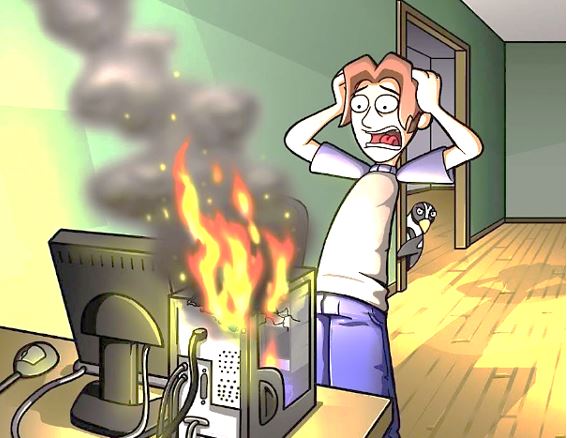You have everything you need to update or repair a PC using the hand tools and utilities outlined in the prior sections, except for new components. Before you begin, go over the sections below, which outline the basic methods and general information you’ll need to operate with computers. Good PC repair by the steps and guidelines. These parts go through how to open the case, set jumpers, manipulate connections, and install or remove expansion cards when working on a computer. The applicable section contains instructions for particular procedures like changing a motherboard, disc drive, or power supply. Even though you’re itching to get in there and fix something, taking the time to properly prepare before jumping in pays off in the long run. Before you create a case about an issue with your system, do the following:
Repairing a PC That Heats Excessively
Modern systems, especially high-performance versions, generate a lot of heat. Excessive heat is frequently the cause of sporadic difficulties or those that appear after a system has been functioning. Temperature sensors are incorporated into most current motherboards. One is placed in the processor socket to indicate CPU temperature, and one or more others near the memory, chipset, and other vital components. Most motherboard manufacturers provide utility applications that record and log temperature readings and other important data like CPU and system fan speeds, voltages on distinctive rails, etc.
Solution
If your operating system does not include such a programme, restart the machine, run BIOS Setup, and follow the menus. Look through the Setup choices until you locate Hardware Monitoring or something like that. Because the BIOS receives data from the built-in temperature, voltage, and fan-speed sensors, you may view and record those numbers straight from the BIOS Setup page. It’s preferable to reboot and take the reading after the computer has been up and running for a time, especially just after the problems you’re attempting to fix appears. Because “standard” temperatures vary immensely based on the speed and type of the processor, the number and kind of auxiliary case blowers, air temperature, amount of load demand, etc., it’s helpful to specify baseline amounts for temperature measurements.
Some Tips To Follow
When running CPU-intensive software, a processor that typically idles at 35 deg C might reach 60 deg C or more. Both the loaded and idle temperatures are critical. A rise in idle temperature signals a cooling issue, such as packed air inlets or a failed CPU fan. Still, extremely high laden temperatures can cause system problems, processor slowdowns due to “thermal clamping,” or chip damage in the worst-case scenario.
Experienced technicians jump in headfirst without considering the consequences. Experienced technicians determine the most likely source of the problem, what you can do to fix it, how they approach the repair, and what they’ll need to finish it. “When you listen to thundering talons, don’t assume they are zebras,” medical students warn. In other words, it’ll mainly be horses, and you’ll waste a lot of time hunting for zebras that don’t exist. Determine the most likely reasons for the problem in roughly sorted order, select which are simple to check for, and then remove the simple ones first.
For the repairing of a PC first, handle to describe the issue. Then follow the instructions to solve the issues and handle ways according to the given instructions. In this regard, PC repair is not a big deal. On the other hand, it’s not so easy to handle and solve this by considering issues and instruction lines.





